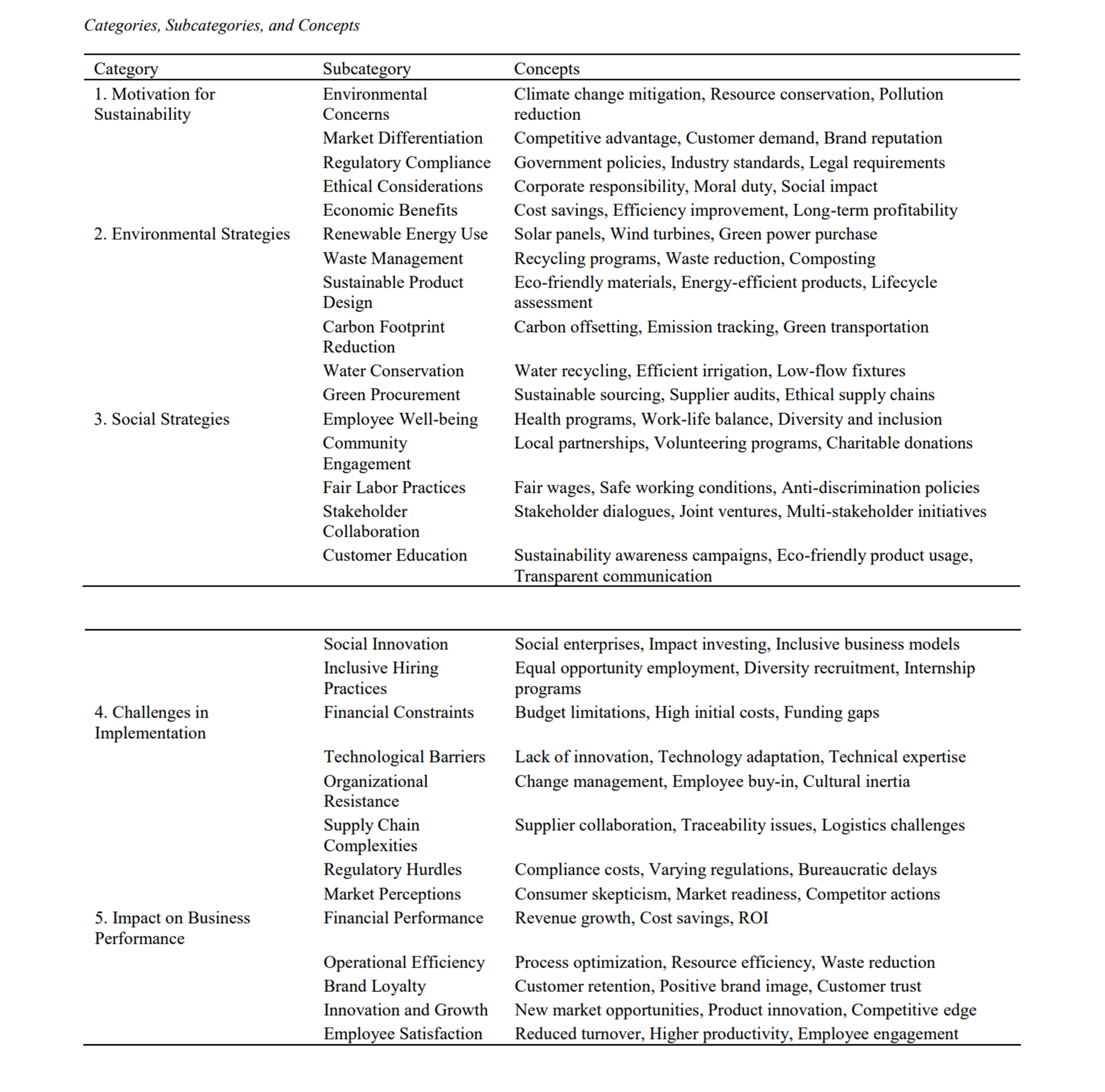Sustainable Business Practices in Technology Start-ups: A Qualitative Inquiry into Environmental and Social Strategies
Keywords:
Sustainable business practices, technology start-ups, environmental strategies, social strategiesAbstract
The objective of this study was to explore the sustainable business practices in technology start-ups, focusing on their environmental and social strategies. The research aimed to understand the motivations behind adopting sustainability, the specific practices implemented, the challenges faced during implementation, and the impact of these practices on business performance. This qualitative study employed semi-structured interviews to collect data from key personnel in technology start-ups, including founders, CEOs, sustainability managers, and other strategic decision-makers. A total of 19 participants were selected using purposive sampling. The interviews were transcribed and analyzed using NVivo software, following an inductive approach to identify themes. Theoretical saturation was achieved when no new themes emerged from the data. The analysis revealed five main themes: motivation for sustainability, environmental strategies, social strategies, challenges in implementation, and impact on business performance. Motivations included environmental concerns, market differentiation, regulatory compliance, ethical considerations, and economic benefits. Environmental strategies encompassed renewable energy use, waste management, sustainable product design, carbon footprint reduction, water conservation, and green procurement. Social strategies focused on employee well-being, community engagement, fair labor practices, stakeholder collaboration, customer education, social innovation, and inclusive hiring practices. Challenges included financial constraints, technological barriers, organizational resistance, supply chain complexities, regulatory hurdles, and market perceptions. The impact on business performance was positive, enhancing financial outcomes, operational efficiency, brand loyalty, innovation, and employee satisfaction. This study provides a comprehensive understanding of the sustainable business practices in technology start-ups, highlighting the multifaceted benefits and challenges of sustainability. The findings offer valuable insights for practitioners, policymakers, and researchers, emphasizing the importance of integrating environmental and social strategies into business operations to achieve long-term success and societal impact.
Downloads






















